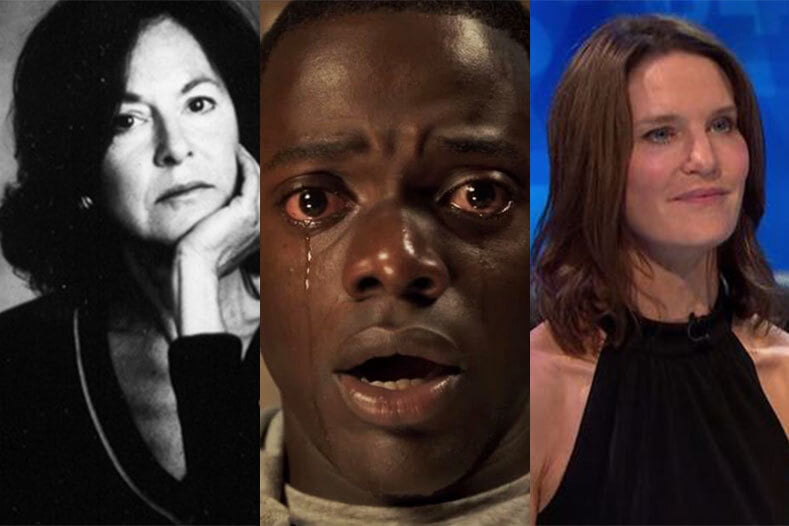Your weekly guide to the weekly happenings in the world of books

Between deciding which non-fiction book we wanted to dive into for a bit of a mental escape, and penning letters about our favourite books to friends and family, here's what managed to catch our eyes this week:
The American Poet Louise Gluck was just announced as the winner of the Nobel Prize for Literature “for her unmistakable poetic voice that with austere beauty makes individual existence universal.” Do you agree with the choice? We know that the diehard Haruki Murakami fans known as the 'Harukists' will be completely devastated. You can relive the Murakami frustration from 2017 in all its 'always a bridesmaid, never the bride' BBC coverage here and explore her life and work here.
Imagine you are a lexicographer. It's your job is to compile dictionaries and to be an expert on words, their origins, spelling, etc. But if you then released a book titled Word Perfect, and it wasn’t in fact, word perfect, and was instead riddled with typos, that might be a bit frustrating for you. This is unfortunately what has happened to the lexicographer Susie Dent when an older version of her manuscript was accidentally sent to print. This is of course, not the only time this sort of thing has happened and The National has an article in its book section collating six famous publishing errors for you to explore.
Attention aspiring novelists! The Emirates LitFest Writing Prize is open for entries. You have until Dec. 19 to submit the first 2000 words of your manuscript and a 400 word synopsis here for your work to be judged by a top UK literary agent. According to William Somerset Maugham,“There are three rules for writing a novel. Unfortunately, no-one knows what they are.” But UAE-based authors and previous winners Jessica Jarlvi and Annabel Kantaria have luckily suggested 10 practical tips over at Whatson.ae to help you on your way.
If you’ve got great penmanship and writing a full-length novel is not something you have time for, you can enter the Montegrappa Letter-Writing Competition. There are three different criteria and deadlines for the younger age categories which you can explore here, but the adult category involves writing a 200 word letter in pen to an author telling them how you would change a story in one of their books, or to a character from a book who has ‘changed your story’. The deadline is Jan. 3, 2021.
During the pandemic, there has been a surge in film and TV studios buying the rights to adapt books for the screen. Essentially while film and TV production has ground to a halt, studio execs, filmmakers and actors have had more time to read, and the appetite for fresh material has only grown, so they’ve spent the time investing in stories that will hopefully be future hits for them. What is a book that hasn’t been adapted or has been adapted badly, that you want to see on the screen? Let us know in the comments!
This is the article on the weirdest screen adaptations of Conan Doyle’s The Hound of the Baskervilles that we didn’t know we needed. From the modern twists on the tale we’re familiar with in Sherlock and Elementary, we journey to a Russian miniseries with a plot to assassinate Queen Victoria, and a cartoon set in the 22nd century where Watson is an android.
Explore the shortlisted finalists for the US National Book Awardshere ahead of the winner reveal on Nov. 18, one day prior to the Booker Award Announcement.
Here are a couple of essays we loved this week in Electric Lit: Why we’re obsessed with stories about the living dead, and 'Who came up with this, and why do they hate me?' asks the author of this amusing and insightful essay on the history and rise of the author photo.
Get insights on 'the strange alchemy that allows literature to transport us...from the everyday' from a woman who has read 95 books this year, and a former counsellor turned professional bibliotherapist provide in this article.
